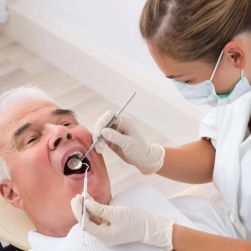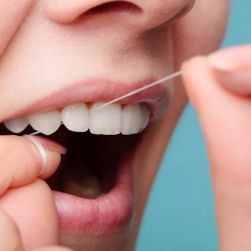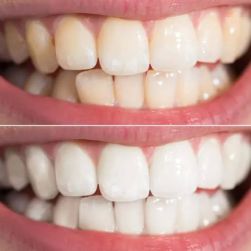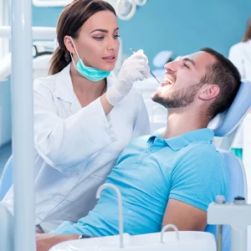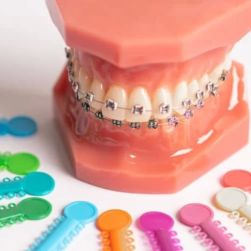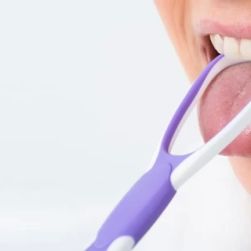Essential Tips for Caring for Your Teeth as You Age
As I have grown older, I have come to realize just how much attention our teeth need, especially as we age. For many, dental health becomes an afterthought, but as we age, our teeth require more care and attention. It's important to maintain a regular dental routine, as well as make necessary adjustments that accommodate the natural changes our bodies go through. In this article, I'll share my personal journey and provide essential tips on how to care for your teeth as you get older. With proper care, we can ensure that our smiles remain bright and healthy for years to come.
The Changing Needs of Your Teeth with Age
As we age, our bodies go through various changes, and our teeth are no exception. I began noticing these changes in my 40s—more sensitivity, more plaque buildup, and an increased risk of cavities. One of the most significant changes is that the enamel on our teeth becomes thinner over time, which can make teeth more vulnerable to decay and sensitivity. This was a wake-up call for me, and I started making more informed decisions regarding my dental hygiene routine.
1. Maintaining a Consistent Oral Care Routine
One of the most critical aspects of caring for your teeth as you age is maintaining a consistent oral hygiene routine. Brushing your teeth twice a day with fluoride toothpaste helps prevent cavities, reduces plaque buildup, and protects against tooth sensitivity. I personally found that switching to a softer toothbrush helped me avoid irritating my gums, which can become more sensitive as we age.
In addition to brushing, I recommend flossing at least once a day. Flossing can remove food particles and plaque from between the teeth, areas where a toothbrush might not reach. I also started using a mouthwash with antibacterial properties, which I found was incredibly helpful in fighting gum disease, which is a concern for older adults.
2. Dealing with Dry Mouth
Dry mouth, or xerostomia, is a common problem for many people as they age. It can make speaking, swallowing, and even eating uncomfortable. One of the main causes of dry mouth is a decrease in saliva production, which happens naturally as we age. Dry mouth can lead to a higher risk of cavities and gum disease, as saliva plays a crucial role in neutralizing acids in the mouth and washing away food particles.
To combat dry mouth, I started drinking more water throughout the day and chewing sugar-free gum, which can stimulate saliva production. I also found that avoiding caffeine and alcohol, which can exacerbate dry mouth, helped me maintain better hydration in my mouth. Additionally, using a humidifier at night can keep the air in your home moist, which can also help alleviate dry mouth symptoms.
3. Keeping an Eye on Gum Health
As I continued my dental journey, I discovered that my gums were not as healthy as I thought. Gum disease becomes more common as we age, and it can lead to tooth loss if left untreated. I made sure to schedule regular dental checkups and cleanings, as my dentist would often spot the early signs of gum disease before I could notice any discomfort.
To keep my gums healthy, I used a soft-bristled toothbrush and avoided aggressive brushing. This is especially important because older adults tend to have receding gums, and harsh brushing can cause further damage. I also added a fluoride rinse to my routine to help fight off bacteria and prevent gum disease. I found that gentle massaging of my gums also helped stimulate blood flow, promoting healthier tissue.
4. Protecting Your Teeth from Wear and Tear
Another aspect of dental care as we age is protecting our teeth from excessive wear. Over the years, I found that grinding my teeth, especially at night, became a more significant issue. Bruxism, or teeth grinding, can lead to tooth damage, jaw pain, and headaches. If you're experiencing any symptoms of bruxism, such as jaw soreness or worn-down teeth, it's important to talk to your dentist. They might recommend a mouthguard to protect your teeth while you sleep.
In addition to using a mouthguard, I became more conscious of the foods I ate. Some foods, like hard candies or ice, can cause significant damage to your teeth if chewed too aggressively. I began choosing softer foods to protect my teeth from unnecessary wear. Additionally, cutting down on acidic drinks like soda and citrus juices helped prevent enamel erosion.
5. Regular Dental Visits: A Must for Older Adults
As I got older, I realized the importance of regular dental visits. I had always gone to the dentist for checkups, but as I entered my 50s, I made it a priority to schedule appointments more frequently. Regular dental visits allow your dentist to catch any potential issues early and prevent more severe problems from developing.
During my dental exams, my dentist would check for signs of oral cancer, gum disease, and cavities. They also made sure my fillings and crowns were in good condition. I highly recommend that adults over 50 see their dentist at least twice a year for preventive care. It's one of the most important things you can do to protect your teeth as you age.
6. The Importance of a Healthy Diet
I've learned that what I eat plays a crucial role in maintaining healthy teeth as I age. A diet rich in calcium, vitamin D, and phosphorus is essential for strong teeth and bones. I started incorporating more dairy products, leafy greens, and nuts into my diet to provide the necessary nutrients for my teeth.
Avoiding sugary snacks and drinks is equally important, as sugar feeds the bacteria that cause cavities. Instead, I opted for healthy snacks like fresh fruits, vegetables, and whole grains. Drinking water after meals also helps wash away food particles and neutralize acids that can harm your teeth.
7. Consider Cosmetic Dental Treatments
As we age, our teeth may lose their natural whiteness, and some may even become crooked or chipped. I personally felt a boost in my confidence when I decided to explore cosmetic dental treatments like teeth whitening and veneers. If you're concerned about the appearance of your smile, I recommend speaking with your dentist about the best options for you. Cosmetic treatments can help restore the look of your teeth and make you feel more confident about your smile as you age.
Although these treatments are not essential for everyone, they can improve your quality of life and help you feel more comfortable in social situations. Just be sure to consult with your dentist to determine which options are best suited for your specific dental needs.
Conclusion
As I continue my journey of caring for my teeth, I've learned that age should never be a barrier to maintaining a healthy and beautiful smile. With the right care, regular dental visits, and a healthy lifestyle, we can ensure that our teeth stay strong and functional as we age. It's never too late to start taking better care of your teeth, and the results will be well worth it.
If you're looking for the best dental care options, I highly recommend visiting a trusted clinic or dentist near you. Websites like Dentistry Toothtruth provide excellent recommendations for finding the right services and clinics. Remember, your smile is important at every stage of life!

